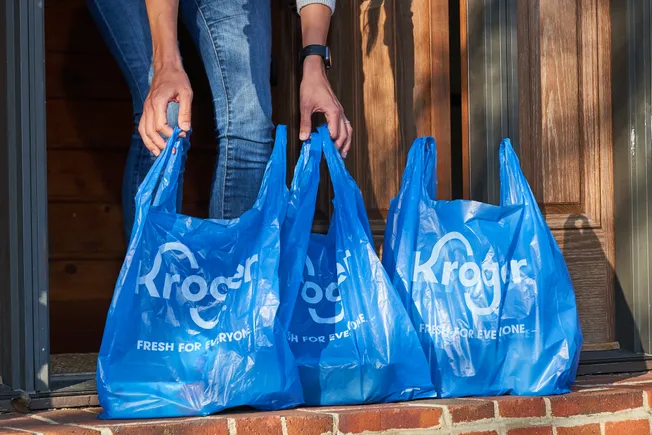Kroger, one of the largest grocery retailers in the United States, recently reported its fourth-quarter earnings for fiscal year 2024. The company posted $34.3 billion in sales during the quarter, representing a decrease of nearly 8% from the same period a year ago. Despite the decline in overall sales, Kroger’s identical sales growth excluding fuel came in at a respectable 2.4%.
The grocer also reported an operating profit of $912 million in Q4, which was down nearly 24% year over year. However, Kroger’s digital business showed strong growth, with double-digit increases in sales and the best quarterly digital profit improvements the company has ever seen, according to interim CFO Todd Foley.
Looking ahead, Kroger faces challenges following the sudden departure of former CEO Rodney McMullen. The company’s interim chief executive, Ronald Sargent, and his team will need to navigate a competitive retail landscape and evolving consumer preferences.
Foley highlighted Kroger’s success in private label brands, with sales outpacing name brands. The company added more than 900 store brands in fiscal 2024, including 370 in fresh categories. Kroger plans to continue expanding its private label offerings at a similar pace in the future.
In terms of inflation, Kroger expects prices to rise between 1.5% to 2.5% in 2025, excluding the impact of tariffs. The company has already seen significant inflation in categories such as eggs and beef, but believes it can mitigate the effects of tariffs through proactive measures in its sourcing and supply chain.
Kroger’s comparable-store sales have remained steady, and the company saw a significant increase in digital sales during Q4. Foley attributed this growth to improvements in automation, technology, and operational efficiency. The company’s partnership with Ocado to build robotic e-commerce facilities has also contributed to its digital success.
As Kroger searches for its next CEO, the company’s board has formed a search committee and is working with a nationally recognized search firm to identify suitable candidates. Sargent emphasized the importance of finding a leader who can drive Kroger’s growth and enhance shareholder value.
For fiscal year 2025, Kroger expects identical sales growth without fuel to be between 2% and 3%, with adjusted net earnings per diluted share ranging from $4.60 to $4.80. The company plans to invest between $3.6 billion and $3.8 billion in capital expenditures, with a focus on completing major store projects and accelerating new store openings beyond 2025.
In light of the CEO transition, Kroger has postponed its investor day event, originally scheduled for April. Despite the leadership changes, the company remains focused on delivering value to its customers and shareholders.
Overall, Kroger’s fourth-quarter earnings reflect a mix of challenges and opportunities as the company looks to navigate a rapidly changing retail landscape and position itself for future growth. With a strong digital business and a commitment to innovation, Kroger is well-positioned to adapt to evolving consumer preferences and drive long-term success in the grocery industry.




